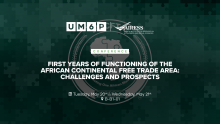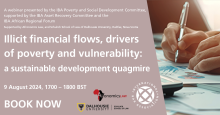Call for Applications: Afronomicslaw Masterclass on Climate Finance, the Green Transition, and Sovereign Debt – Accra, Ghana
Join a Transformative Training at the Intersection of Climate Justice, Economic Sovereignty, and Global Governance. Afronomicslaw invites applications for an in-person Masterclass on climate finance and economic justice training taking place in Accra, Ghana.

